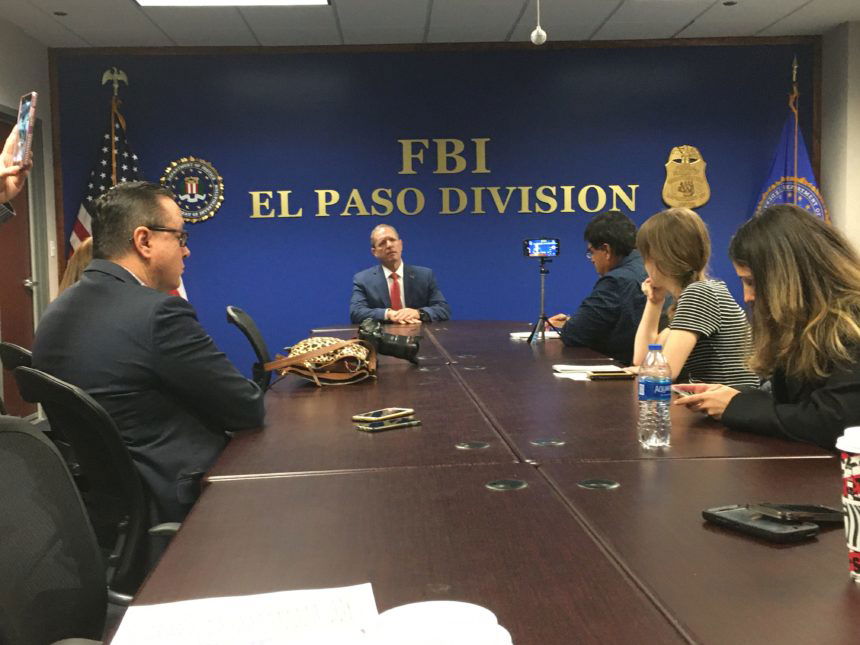FBI’s new El Paso leader sees breaking encrypted messages as challenge to fighting domestic terrorism

EL PASO, Texas -- The new special agent in charge of the El Paso FBI office says encrypted messages shared by domestic terrorist groups could provide crucial information about planned attacks.
Luis Quesada took the helm as the special agent in charge of the El Paso FBI office on Nov. 4th.
Quesda says not all messages, like the accused gunman who is alleged to have written a manifesto before the Aug. 3 mass shooting, can be easily read and deciphered.
According to Quesda, one such encrypted communication the FBI is still trying to break had to do with the shooter at a Texas church.
Devin Patrick Kelley killed 26 people and wounded 20 others during a mass shooting at the First Baptist Church in Sutherland Springs on Nov. 5, 2017.
"We speak of the these radicalized individuals who communicate among themselves. They write manifestos, they put them out. if we don't have access to that that's a threat to all of us," said Quesada
He sees access to encrypted messages as a new challenge to try to thwart potential domestic terrorist attacks in the U.S.
Quesada says companies are developing hardware making it hard for agents to break encrypted codes.
Add to that, agents have to jump through legal hoops to try to gain access to technology used for encryption.
He calls them almost warrant proof.
In fact, Quesada points to the person who committed the Sutherland Church mass shooting and may have been radicalized, but they're having a hard time breaking messages the shooter may have shared with other groups.
"If we don't have access to encrypted communications we are blind to that. And that can give a whole platform for individuals like this, that get socialized, radicalized or influence themselves for us to be able to address this threat," added the new special agent in charge.
Quesada says legislators need to pass laws making it possible for law enforcement officials to gain access to encrypted messages that could raise red flags alerting them to possible wrongdoing.
ABC-7 asked Quesda if agents have seen any red flags concerning possible future attacks in El Paso.
"At this point we remain consistently vigilant. At this point, we do not have anything that poses an immediate threat," responded Quesada.
Quesada says encrypted messages are not just used by domestic terrorists, but are also used by human smugglers and people who deal in child pornography.
